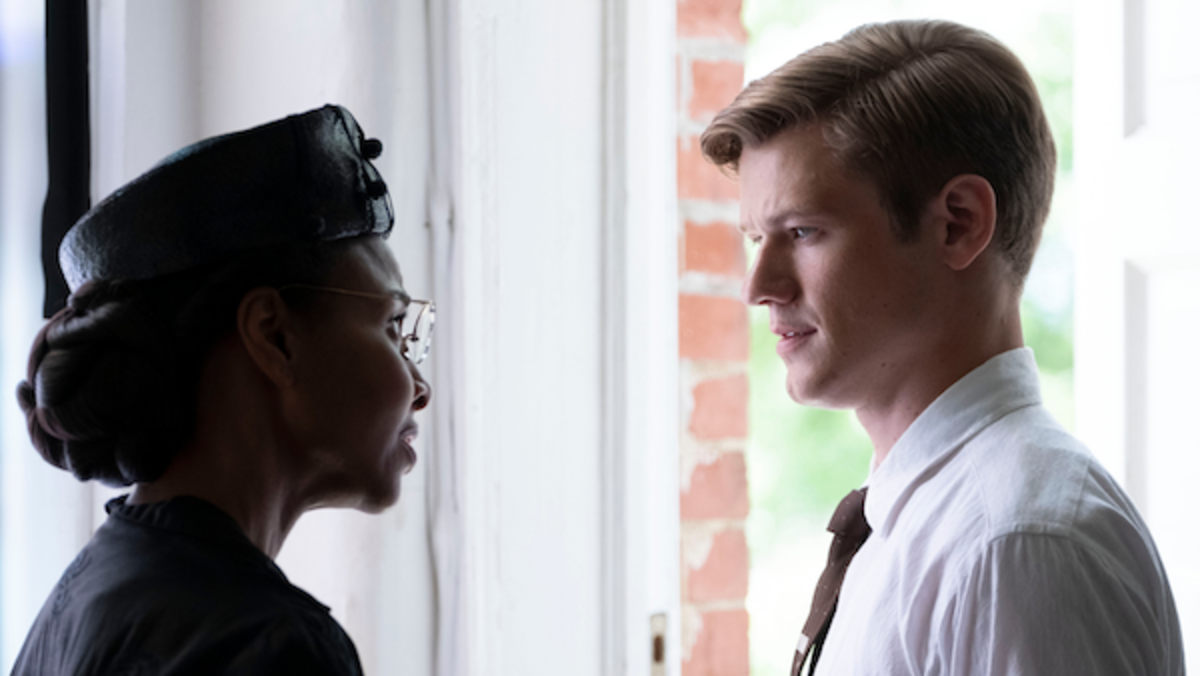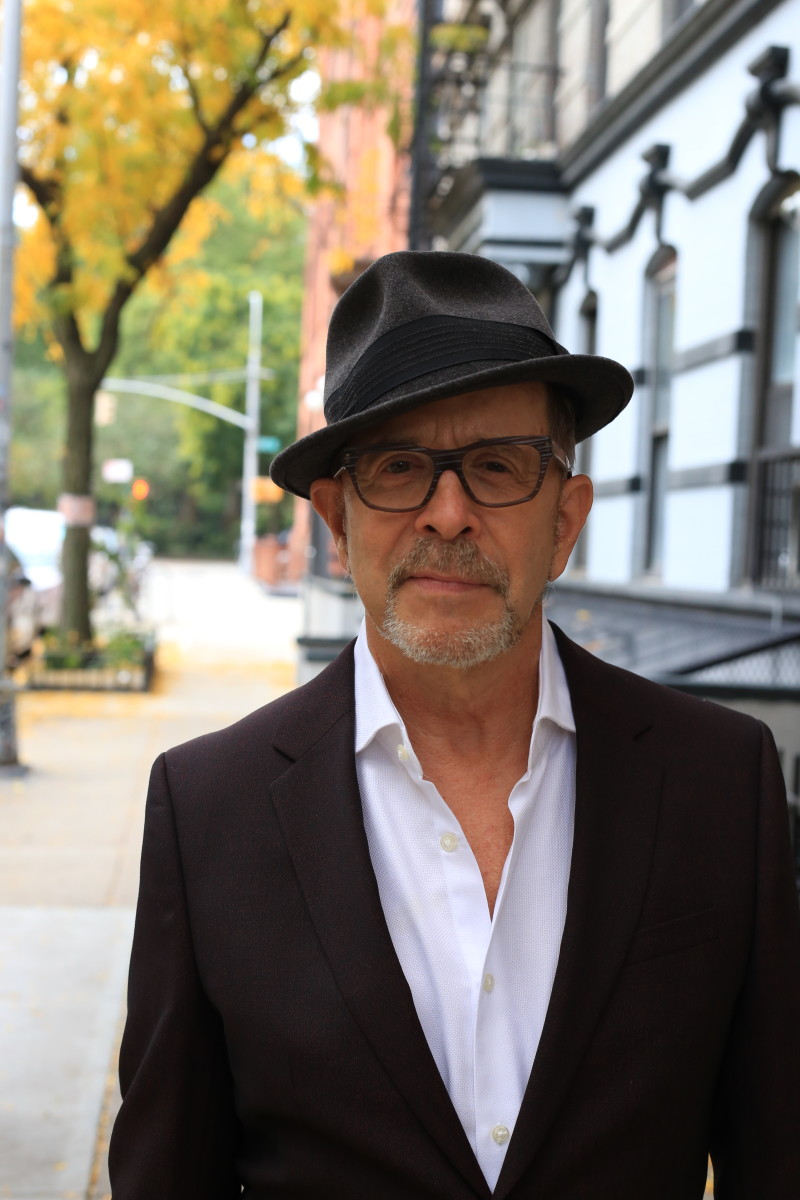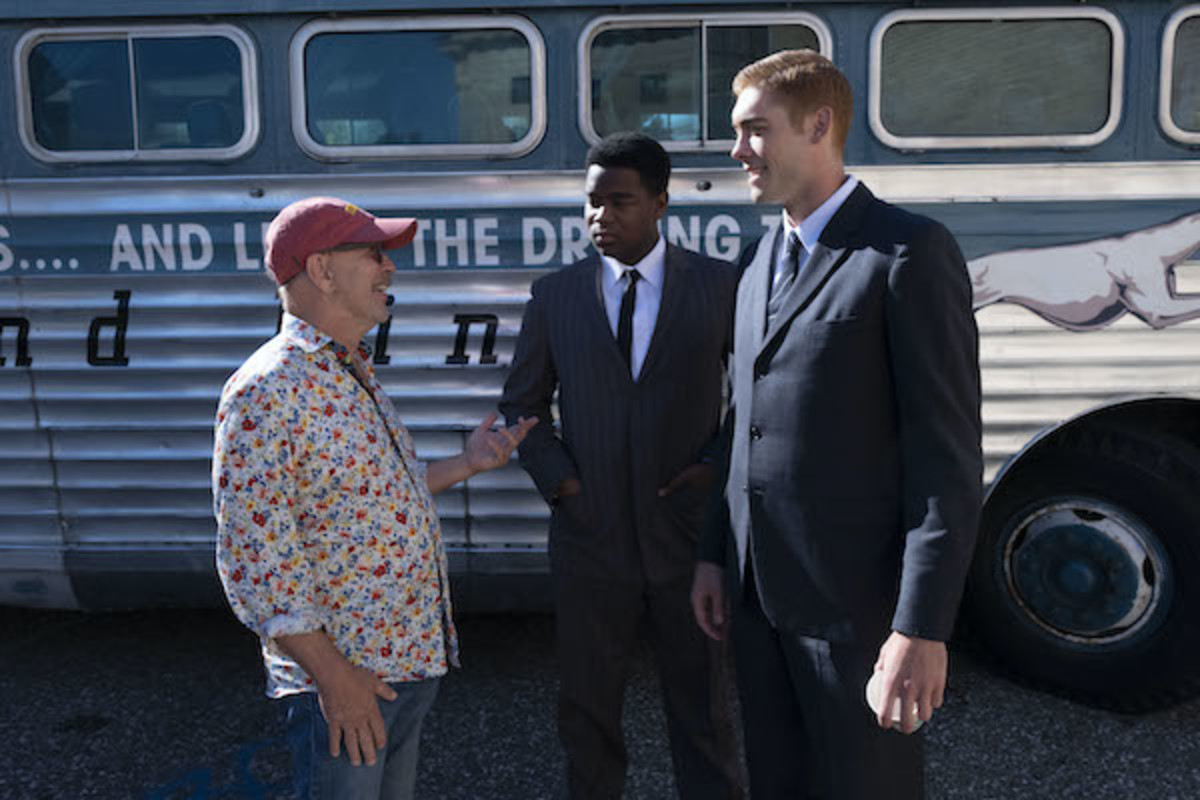Susan Kouguell speaks with ‘Son of the South’ Writer, Director and Editor Barry Alexander Brown about the film that was twelve years in the making, the adaptation process, and how his background as an editor informed his work as a screenwriter.

Executive produced by his longtime friend and colleague Spike Lee, Son of the South is based on civil rights activist Bob Zellner and his autobiography, “The Wrong Side of Murder Creek”. The film follows Bob Zellner, a Klansman’s grandson, who must choose which side of history to be on during the Civil Rights Movement. Defying his family and white Southern norms, Zellner fought against social injustice, repression, and violence to change the world around him.
This film, which was twelve years in the making and is dedicated to the late civil rights icon John Lewis, takes place in Alexander’s hometown of Montgomery, Alabama where the real-life events occurred.
About Barry Alexander Brown
As a young director, Brown was nominated for an Oscar for his first film, a feature-length documentary about the rise of the anti-Vietnam War Movement titled, The War at Home. He edited numerous Spike Lee films, including Do the Right Thing, Malcolm X, Inside Man, and BlacKkKlansman for which Lee won a best-adapted screenplay Oscar and Brown was nominated for best editor. Brown has worked with Mira Nair on the Oscar-nominated Salaam Bombay!, Madonna, In Bed With Madonna, Adrien Brody on Clean, and Tony Kaye’s Detachment. Brown was recently honored at UNESCO and AFI’s World Peace Initiative Awards. He received the Lifetime Achievement Award and their World Peace & Tolerance Narrative Feature Film Award for Son of The South.

Mr. Brown describes his relationship with Bob Zellner as: “We were both liberal white boys from Alabama and we easily got along.”
Susan Kouguell: Tell me about the adaptation process.
Barry Alexander Brown: The first thing I gravitated towards was that The Wrong Side of Murder Creek should be a movie, but the scope was way too big for one film. I wasn’t interested in doing a movie that quickly skips through history. I was writing the script around the same time Bob was writing his book. So much of what I wrote was more based on lots of my conversations with him.
It took me almost two decades to tell his story in a concise way that would convey the importance of what he did and who he was. It took me forever to decide which part of this story that I can take that will make a good story, with a good beginning, middle and end.
You have to write a story that makes sense, and write dialogue that is sayable for the actors and helps move the story along, and come up with dialogue that sometimes paraphrases what happened. This film gave me the ability to say things I wanted to say things about what Bob and I grew up in.
Kouguell: Did you consult on the script with Mr. Zellner?
Brown: I sent him scenes and sometimes he would tell me more information and stories because I wasn’t there when these things happened — he’s about 20 years older than I am.

Kouguell: How did your extensive work as a film editor inform you as a screenwriter?
Brown: With film editing, you’re taught so much about pacing and how to get in and out of scenes. Editing informed a lot of how I wrote. There are so many times a scene would stand alone but more often than not it actually creates a greater sequence of scenes that is all about one thing and what the characters are feeling. I’ve come to understand that one scene doesn’t always stand-alone, it’s a piece of a sequence of scenes.
I’ve worked with very good scripts, and you begin to grasp what writers are doing and also in terms of their language. I remember reading the James Joyce quote about Ulysses – ‘I felt like a thief walking around Dublin stealing people’s lines”. I think it’s good to go around town and listen to the way people talk.’Son of the South’ Script-to-Screen, Courtesy Barry Alexander BrownVolume 90%
Kouguell: There are some humorous moments in the film that offer a good balance with the dramatic events unfolding.
Brown: Although this film is a drama, I still wanted to have humor. Mainly, and why I wanted to use it is because the south is a funny place and they like to play with language. Many films that are set in the south, I don’t recognize these people that are somewhat dour and have no sense of humor; that’s not the south I know.
Two examples of these moments are when Younger asks Bob “Are you really a communist? Say something in communist for me” and Bob’s own repeated line, “I’ll try anything three times”.
Kouguell: Your advice to screenwriters?
Brown: Give every character their own life. Some people have very stylized scripts and sometimes that really works but I don’t think I could do that. I want to understand everybody. There are no small parts. If someone walks into a scene and they have a line or two, you have to know who they are and give them something in that line or two because this is a real person with a real personality.
Also, one of my rules is I should be able to sit down with somebody and tell the story I’m writing but tell it as a story not a script. For me it’s very important that not only is the journey interesting but that it’s going somewhere, so when you get to the end someone isn’t thinking ‘What? That’s it? Why did you tell me the story?’